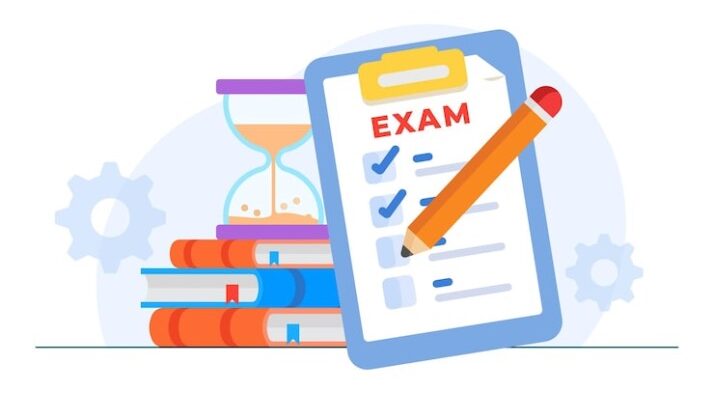CBSE To Introduce Open Book Exams For Class IX
Share

Starting with the academic year 2026–27, Open-Book Assessments (OBAs) for Class IX students will be implemented, marking a major modification in the evaluation technique of the Central Board of Secondary Education (CBSE). Approved by the board’s Governing Body in June 2025, the choice fits the National Curriculum Framework for School Education (NCFSE) 2023 and the National Education Policy (NEP) 2020. The main goal of this project is to help students move away from rote memorization toward competency-based learning, allowing them to use ideas to real-world situations rather than just repeat memorised material.
Class IX students will be free under the new system to access their textbooks, class notes, and other approved resources while striving for assessments in core subjects including Language, Mathematics, Science, and Social Science. Although CBSE will provide thorough implementation instructions, schools would remain free to adopt this pattern. Ensuring the three pen-paper exams administered in each academic term are incorporated into the daily internal assessment system rather than being seen as separate tests, the OBAs will be part of them.
Following a pilot program started in December 2023 testing the open-book approach across Classes IX to XII, this decision follows. The study examined how students performed when permitted access to resources during examinations and assessed factors like as completion time, efficiency in navigating materials, and stakeholder input. Student performance in the pilot ranged from 12% to 47%, indicating that although the approach has promise, many students had trouble using reference materials effectively or to incorporate knowledge across subjects. Teachers involved in the trial nevertheless were upbeat, pointing out that the open-book format encourages analytical thinking, problem-solving, and a deeper engagement with the subject matter.
With the introduction of OBAs, CBSE is second big attempt at adopting an open-book system. For Classes IX and XI in several subjects, the board launched the Open Text-Based Assessment (OTBA) in 2014, where pupils were given reference materials months before tests. But the OTBA was abandoned in the 2017–18 academic year because it failed to meet its aim of greatly raising critical thinking abilities among pupils. By offering standardised sample papers, thorough instructions, and systematic training for schools, CBSE is this time going extra miles to guarantee improved results.
A key part of the implementation strategy involves helping students and teachers adapt to the OBA system. CBSE plans to conduct training sessions and offer support materials to schools, ensuring that educators are equipped to guide students in effectively navigating resources during exams. This includes teaching strategies for time management, locating relevant information quickly, and applying knowledge to solve complex problems. The focus will be on developing students’ capacity to think critically, connect concepts across different subjects, and apply their learning to practical and real-world contexts.
The open-book format is expected to change how students prepare for assessments. Instead of memorising large portions of the syllabus, learners will need to develop skills in comprehension, application, and synthesis. This approach aligns closely with the competency-based learning model promoted in the NEP 2020, which emphasises skill development, conceptual clarity, and the ability to tackle unfamiliar problems using learned knowledge. Proponents of the system believe it will foster creativity and intellectual curiosity while reducing exam-related stress, as students will no longer feel pressured to memorise and recall every detail.
At the same time, the pilot results indicate that the transition to open-book exams will not be without challenges. Many students in the trial phase were unprepared for the shift in exam style, often spending too much time searching for answers rather than formulating well-reasoned responses. To address this, CBSE will provide schools with exemplar question papers that require interpretation, analysis, and critical engagement rather than simple retrieval of facts. This will help ensure that the OBAs truly assess higher-order thinking skills instead of merely testing a student’s ability to find information in a book.
While participation in the OBA format will initially be optional for schools, its integration into the academic structure is being seen as a step towards a long-term transformation in assessment methods. Educational experts have noted that the success of OBAs will depend largely on teacher training, curriculum adjustments, and a shift in mindset among students and parents. With the right preparation, open-book assessments could become a powerful tool to equip students with the skills needed for higher education and the workplace, where problem-solving and adaptability are valued more than rote learning.
CBSE will carefully watch how schools implement the program as it gets ready for the 2026–27 launch and will compile input to make further adjustments. The board believes that slow incorporation of OBAs into the evaluation process would help kids to acquire the confidence and ability to creatively apply their knowledge. Should this strategy succeed, it could indicate a larger change in the school examination system in India, affecting other boards and education institutions to go towards assessment patterns that emphasise understanding and application over rote memorisation.








